Divine Fire, by Melanie Jackson
>> Friday, March 17, 2006
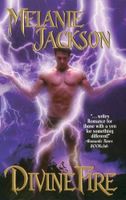 After reading Melanie Jackson's Traveller, one of the freshest, most original books I read last year, I added her to my "authors to look out for" list and picked up much of her backlist. The next book of hers that I tried was Divine Fire. This one isn't part of the series which starts with Traveller, but the premise sounded just as fascinating.
After reading Melanie Jackson's Traveller, one of the freshest, most original books I read last year, I added her to my "authors to look out for" list and picked up much of her backlist. The next book of hers that I tried was Divine Fire. This one isn't part of the series which starts with Traveller, but the premise sounded just as fascinating.
In 1816, Lord Byron stayed at the castle of Dr. Johann Dippel, the inspiration for Mary Shelley's Baron von Frankenstein. The doctor promised a cure for his epilepsy. That "cure" changed him forever.It's strange, but I've been noticing more and more in very different books that I have the same problem with them: abrupt switches in the very basics of how the story develops, which means I get two distinct halves, one of which works much better than the other one.
In the 21st century, Brice Ashton wrote a book. Like all biographies of famous persons, hers on Lord Byron was sent to critics in advance. One Damien Ruthven responded. He suggested her work contained two errors—and that only he could give her the truth. His words held hints of long-lost knowledge; were fraught with danger, deception...and desire. And his eyes showed the experience of centuries. Damien promised to share his secrets. But first, Brice knew, she would have to share herself with him.
This is exactly what happened with Divine Fire. While the first half is a wonderful gothic character-driven romance, the entire second half is basically a bloody, gorey non-stop, break-neck action scene. I loved the first part, but the second one, not so much. My final grade would be a B-... the average between a much higher grade for the first part and a much lower one for the rest.
The basic premise of Divine Fire is that due to what was supposed to be a revolutionary treatment for epilepsy involving electricity and a Dr. Frankenstein-like physician, Lord Byron became an immortal being. His demise in Greece was only the first of a series of simulated deaths, and he's spent his existence ever since living 20 years here, 30 years there, moving as soon as people start thinking: hmm, it's weird this man is not looking any older!
In his current incarnation Byron is Damien Ruthven, a filthy-rich book reviewer living in an old gothic building he owns in New York City. One day he receives a huge biography of Lord Byron and is shocked at the way this unknown writer has managed to "get" him. Against all his rules, he writes this woman a letter mentioning there are a couple of errors there, and hinting he might have some papers which could throw some light on these areas.
When Brice Ashton receives Damien's letter, her first thought is that he might have a copy of Byron's famous autobiography, the one that was destroyed by his editors at his widow's request. So she impulsively flies into NYC (a couple of days before Christmas, no less!), and barges into Ruthven's office.
This first half that I liked so much gives us nothing more than Brice and Ruthven getting to know each other and working together. They click the minute they meet, and given that the weather is just filthy and there's a huge electrical storm coming in, and that he has plenty of space in the penthouse Damien offers Brice to stay there (and, he adds, there's no way he can allow her to remove the very rare, valuable and irreplaceable papers he shows her from his building, so if she stays, she'll be able to work on them as long as she wants).
It's all very quiet and low-key, and involves many long conversations, including some fascinating ones about authors like Lord Byron (Damien is again struck by how well Brice understands who he was) and Ninon de Lenclos, about whom Brice is writing her next book. But most of all, they talk about themselves and each begins to explore the other's bagagges.
I liked the way Jackson dealt with Brice discovering Damien's secret. It could easily have become a tedious issue, but just as she so easily sees the motivations of the original Lord Byron, Brice instictively latches on to the things that don't jive and leaps to some interesting (and correct) conclusions. This would have ordinarily felt like a bit too much, but the way Jackson had set up the almost mystical understanding between Damien and Brice, it worked.
Damian was an interesting, very engaging character. I'm not usually fond of having real historical personages show up in my romance novels, and that goes double if they are one of the protagonists! I guess I was ok with it here because it was just so out there (a plot line in which, say, the heroine is a Regency Miss who falls in love with Byron wouldn't have worked nearly as well!) Plus, fortunately I don't know much about Byron's private life, so I wasn't distracted by any preconceived notions.
Brice was a pretty cool character as well. She's a woman marked by a certain horrific tragedy in her past (and it really was horrific!), but while this does make her a bit skittish with men and Damien has to work to reach her, she isn't tediously stubborn about it.
I also loved the ambience in this part of the book. As I said, Damien owns this fascinating gothic building in NYC, and though he doesn't occupy all of it, the other tenants are all companies, so the building pretty much empties by evening. The setting, combined with the freakish electrical storm circling around the city like a bird of prey (which has some, ah, interesting physical effects on Damien), makes for some wonderful atmosphere.
So, what happens to ruin what was going so well? Simple: around the half-way mark, the physician who performed those experiments on Lord Byron shows up, an army of zombies in tow, determined to destroy his "creation". And so, from a lush, intense and romantic story, this turns into a campy bloodbath of a zombie movie. Not that I have anything about campy zombie movies (in fact, I actually like them!), but it just didn't go at all with the first part of the book, and it went on for much too long. After the nice, romantic first half, to have our hero and heroine dealing with being sprayed with brains and assorted body parts was a bit disconcerting.
Still, even this huge action scene was a bit better than the usual action scene, which basically puts me to sleep. I would have prefered that the story continue in the vein it had started, but I'd still recommend the book.




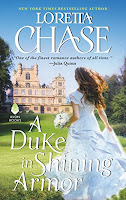
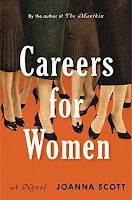
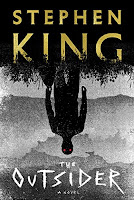
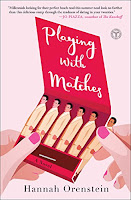
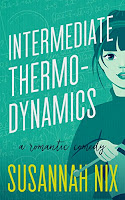
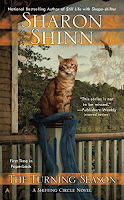
0 comments:
Post a Comment